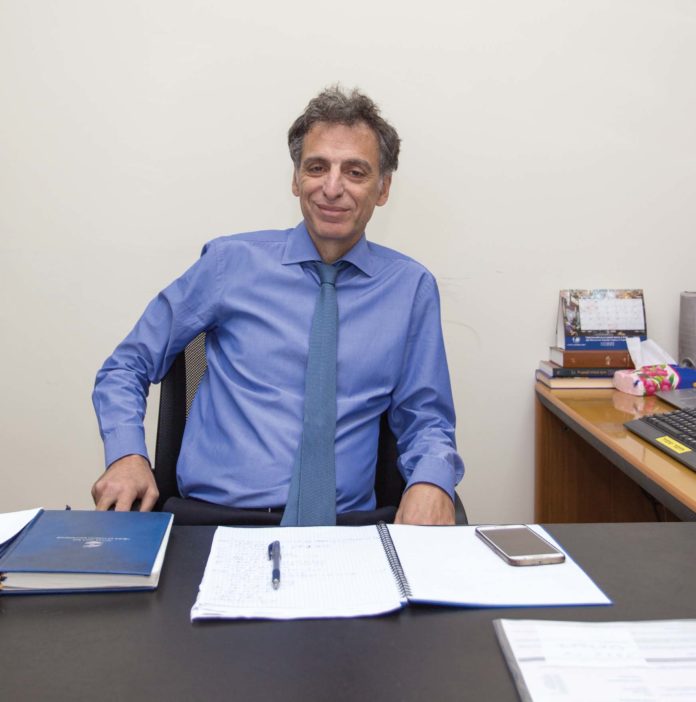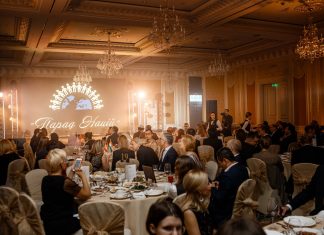Extraordinary and Plenipotentiary Ambassador of the State of Israel to Ukraine Eliave Belotserkovsky told the international diplomatic magazine “Fashion of Diplomacy” about the time when the agreement on a free trade area between our states will start to work, about the history of his family and about those things the Israelis can teach the Ukrainians.
“…Our State appreciates the lives of its citizens and considers each of them as its greatest treasure…”
What is the state of bilateral cooperation between our countries in the political, humanitarian and economic spheres?
– We can observe the positive dynamics. After the Revolution of Dignity and after the beginning of the tragic events in the east of your country, of course, there was some stagnation, but in late 2014 the revival of bilateral cooperation between our countries began. Bilateral consultations were held between the foreign ministries of Israel and Ukraine. I would like to mention separately the visit of the President of Ukraine Mr. Poroshenko to Israel in December 2015. During this visit, a number of important agreements were signed, in particular, about cooperation in the sphere of transport security. Now our Embassy has been working on the organization and realization of the visit of Israeli Prime Minister to Kyiv that would be an important impetus for the development of bilateral political, economic and humanitarian relations. Also I would like to emphasize that Israel supports the territorial integrity of Ukraine, not recognizing the annexation of the Crimean peninsula, and it is our principled position. In particular, our Embassy strongly and categorically warned Israeli companies against any form of their activity in the annexed territory.
Regarding economic cooperation, in spite of the period of short stagnation mentioned by me, we have been moving forward, actively increasing the turnover. Speaking about humanitarian cooperation, – and you probably know this – Israel has been assisting those Ukrainian citizens that had got serious injuries at the military actions in the eastern Ukraine.
 How can you describe the situation around the Agreement of the Free Trade Area between our countries? Does it face any obstacles or difficulties?
How can you describe the situation around the Agreement of the Free Trade Area between our countries? Does it face any obstacles or difficulties?
The draft of this Agreement had been agreed during the visit of President Poroshenko to our country in December 2015 that I mentioned earlier. It was planned that this agreement would start in the first half of 2016, but we still have to agree certain procedural issues, compliance of which is required by the legislation of our state. However, I am confident that in the nearest future this Agreement will be ratified and it will work for the benefit of our peoples.
Next year, Jerusalem will host the Eurovision Song Contest. Last year, Kyiv dealt with the same problem. Will our experience of security measures conducting be useful in your country?
– Ukraine had hosted this competition at a very high level. All security standards were met. Israel had already had an international song contest and therefore there are certain achievements with us, of course. But the world has been changing and the nature, scale and character of terrorist threats are changed either – so, we would be grateful for any security assistance during the Eurovision Song Contest in Israel.
Many Israeli politicians and statesmen are originated from Ukraine. You were born in Moldova, but your last name speaks of a certain connection with Ukraine. Is it so?
– Yes, of course. In spite of the fact that I was born in Chisinau, despite the fact that my father, too, was born in this city, the history of our family is connected with Ukraine. I do not know when this happened, but my ancestors moved to Moldova from the Ukrainian lands.

In June–2018, the Ukrainian–Israeli forum took place in Kyiv. This forum was devoted to the Israeli experience of state-building for Ukraine. What, in your opinion, Israel can teach us?
– I do not think that we have the right to teach Ukrainians for some reason.
I am also not sure that I personally have the right to give you any advice.
But we, of course, can – and should – share experiences. What is the useful experience of Israel for Ukraine? This is a difficult issue, but I will try to answer it. You see, we have not had a state for many centuries, and when in the last century our people had to go through the terrible trials that we call The Catastrophe, we realized that we needed the state as an institution that would protect us. Therefore, each of us has a duty to the State, but the State also assumes responsibility for the fate of every citizen. We have the army service not only for men, but also for women, and our army is the most powerful in the Middle East region. But we all in Israel know the following thing – if one of the men and women who protect Israel will be injured at the military service – the State will take care of them. If they fall into hostile captivity, then the State will do its best and impossible for their liberation. And these words are not the empty ones.
In order to release one of our captives, we released hundreds of enemies from our prisons.
The state appreciates the lives of its citizens and considers each of them its greatest treasure. And the same attitude of the State to its citizens, I would like to wish for Ukraine and the Ukrainians…













